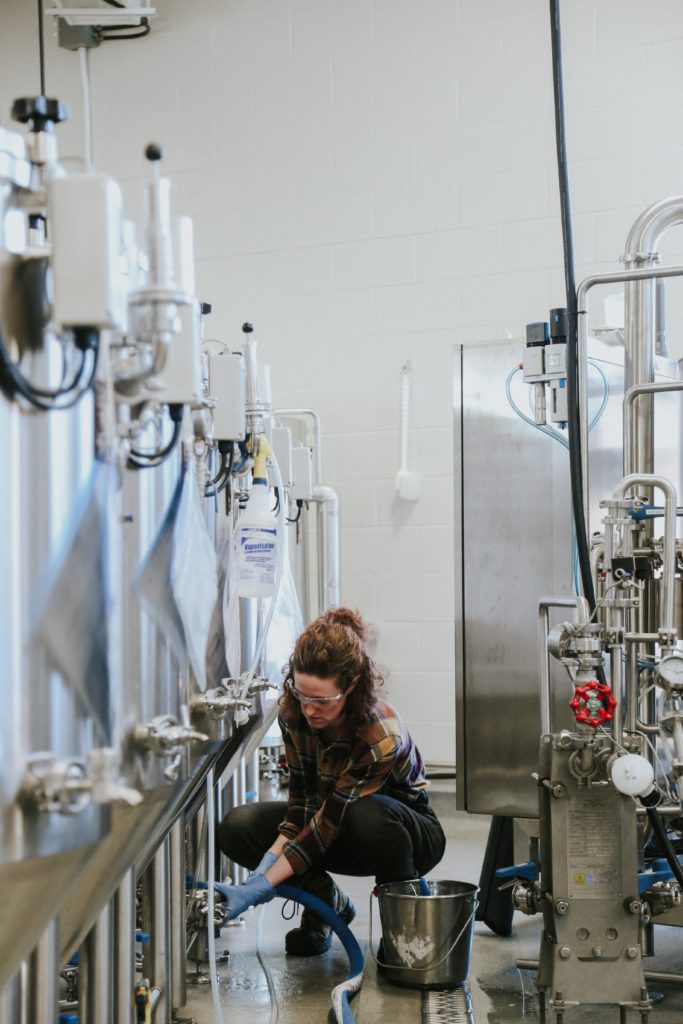
The alcoholic beverage industry is highly regulated. Industry members are expected to know and comply with federal, state, and local laws that apply to the production, distribution, and retail sale of alcoholic beverages. In addition, regulatory agencies–principally the federal Alcohol and Tobacco Tax and Trade Bureau (TTB) and the State of Florida Division of Alcoholic Beverages and Tobacco (ABT)–have created additional rules that govern the alcoholic beverage industry.
The following table is a very brief overview of the legal responsibilities of every alcoholic beverage suppliers (including manufacturers, importers and brokers) operating in Florida. Describing and understanding these legal responsibilities is the goal of this website. The Categories column provides links to blog posts that provide additional information on each topic.
| Topic | Suppliers’ Responsibilities | Blog Categories |
| Licenses & Permits | Suppliers cannot operate without federal and state licenses and permits. This requires submitting licensing applications to the TTB and the ABT. Generally, license applications focus on two topics: (1) the place where alcoholic beverages products will be made or kept, and (2) the people who will have responsibility for the handling of alcoholic beverage products. For licensing through the ABT, preliminary approval by other agencies–the local zoning authority, Department of Revenue, and appropriate health authority–is required. The ABT license application requires payment of an initial licensing fee, and maintaining the state licenses requires paying annual license fees. For both federal and state licenses, updates to the license information is required whenever there is a change to the premises, responsible people, or operations. | Licensing |
| Recordkeeping & Reporting | Suppliers are required to keep detailed records of their alcoholic beverage products. Inventories, production reports, invoices, and bills of lading must tell the story of how all alcoholic beverage products are made or imported and sold. | Recordkeeping; Reporting |
| Excise Taxes | Alcoholic beverage products are subject to federal and state excise taxes. These are taxes that apply on the creation or importation of the products themselves, regardless of how or when they are sold. Suppliers are required to pay federal and state excise taxes on their alcoholic beverage products unless another industry member is required to make payment. | Taxes |
| Audits & Inspections | Suppliers are required to operate in a transparent manner, so that the TTB, ABT, and other government agencies can verify compliance with applicable laws and regulations. Primarily, this involves periodic audits of suppliers’ recordkeeping and reports, to confirm that excise taxes have been calculated properly. Government agencies may also conduct inspections to ensure that alcoholic beverage products are being kept secure and sold in accordance with applicable laws. | |
| Brands & Labels | Suppliers must register alcoholic beverage brands with the ABT and must obtain label approval from the TTB (subject to exceptions). Florida brand registration is a part of the state’s process for ensuring the excise taxes are paid on all alcoholic beverage products that are made in the state or imported. Brand registration is also significant with respect to compliance with Florida’s Beer Franchise Law, which requires brands to be distributed through exclusive distributors. Federal label approval is required to ensure that labels comply with federal laws and regulations about what information and images can be included on labels. As a significant exception, federal label approval is not required for beer that is not distributed outside the state in which it is made. | Brands; Labels |
| Product Safety | Suppliers are required to ensure that their products are safe and unadulterated, in compliance with federal laws and regulations. Generally, alcoholic beverages that are made with traditional ingredients and methods are presumed to be safe, but TTB formula approval is required for certain ingredients or alternative methods of production. | |
| Advertising | Advertising concerning alcoholic beverage products must comply with federal laws and regulations. Advertising rules are principally aimed at ensuring that advertising is truthful and accurate and not designed to appeal to underaged consumers or consumers who might abuse consumption of alcoholic beverage products. | Advertising |
| Three Tier System | Suppliers are required to operate within the Three Tier System. Principally embodied in the Florida Beverage Law, the Three Tier System is intended to keep separate the operations of alcoholic beverage suppliers, distributors, and retail vendors. A number of exceptions to the Three Tier System apply. Comply with the Three Tier System is especially important in connection with obtaining and maintaining Florida alcoholic beverage licenses. | Three Tier System |
| Distribution | Suppliers must comply with distribution agreements and Florida laws that affect distribution. Especially because of the Three Tier System, suppliers are prohibited from selling alcoholic beverage products directly to retail vendors and are limited in their ability to sell to consumers. The Florida Beer Franchise Law plays a significant role in how beer suppliers and distributors work together. | Distribution |
| Retail Sales | Suppliers, particularly when they are making permitted sales to consumers, must comply with Florida and local laws that apply to retail sales of alcoholic beverage products. Florida law prohibits sales to persons under the age of 21 or “habitual drunks.” Florida law also impacts whether and how suppliers are permitted to make deliveries to consumers who place orders online, whether directly or through a delivery service. Local ordinance often affect when taprooms and tasting rooms can be open. | Retail |
Do you have any questions about alcoholic beverage suppliers’ responsibilities? Contact us to schedule a consultation with a beverage attorney.
Because we’re attorneys: Disclaimer. Posted August 14, 2022.
